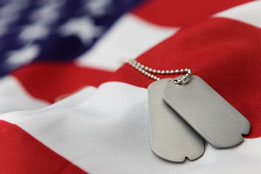Stand Down History and How Bridging the Gap Helps
 The original Stand Down for homeless veterans was modeled after the Stand Down concept used during the Vietnam War to provide a safe retreat for units returning from combat operations. At secure base camp areas, troops were able to take care of personal hygiene, get clean uniforms, enjoy warm meals, receive medical and dental care, mail and receive letters, and enjoy the camaraderie of friends in a safe environment. Stand Down afforded battle-weary soldiers the opportunity to renew their spirit, health and overall sense of well-being.
The original Stand Down for homeless veterans was modeled after the Stand Down concept used during the Vietnam War to provide a safe retreat for units returning from combat operations. At secure base camp areas, troops were able to take care of personal hygiene, get clean uniforms, enjoy warm meals, receive medical and dental care, mail and receive letters, and enjoy the camaraderie of friends in a safe environment. Stand Down afforded battle-weary soldiers the opportunity to renew their spirit, health and overall sense of well-being.
That is the purpose of the Stand Down for homeless veterans, and achieving those objectives requires a wide range of support services and time. The program is successful because it brings these services to one location, making them more accessible to homeless veterans.
In July 2002, the founders of Stand Down – Robert Van Keuren, Dr. Jon Nachison and Vietnam Veterans of San Diego – asked the National Coalition for Homeless Veterans (NCHV) to become the “keeper of the flame” and provide national leadership for the movement. Since the first Stand Down in San Diego in 1988, the program has become recognized as the most valuable outreach tool to help homeless veterans in the nation today.
Our goal to continue serving the Veterans is seeing some changes in their needs. We have added 3 new line items to our budget. By doing this, we are able to spend the money all year around, as opposed to just for the Stand Down events. This money does not carry over from year to year. All monies are still used for Veterans only.
- We are allowing an annual $10,000.00 Grant, to be used for coats shoes/boots.
- We are allowing an annual $10,000.00 Grant, to be used to fill the need of our food pantry, when it is low on supplies. This is housed at the Homeless Outreach Office in Davenport.
- We are allowing an annual $10,000.00 Grant, to be used in a Veterans Assist Grant program. This is to be used when a Veteran has qualified for housing and a place has been found for them. It is to help set up a place to live, not to sustain it.
